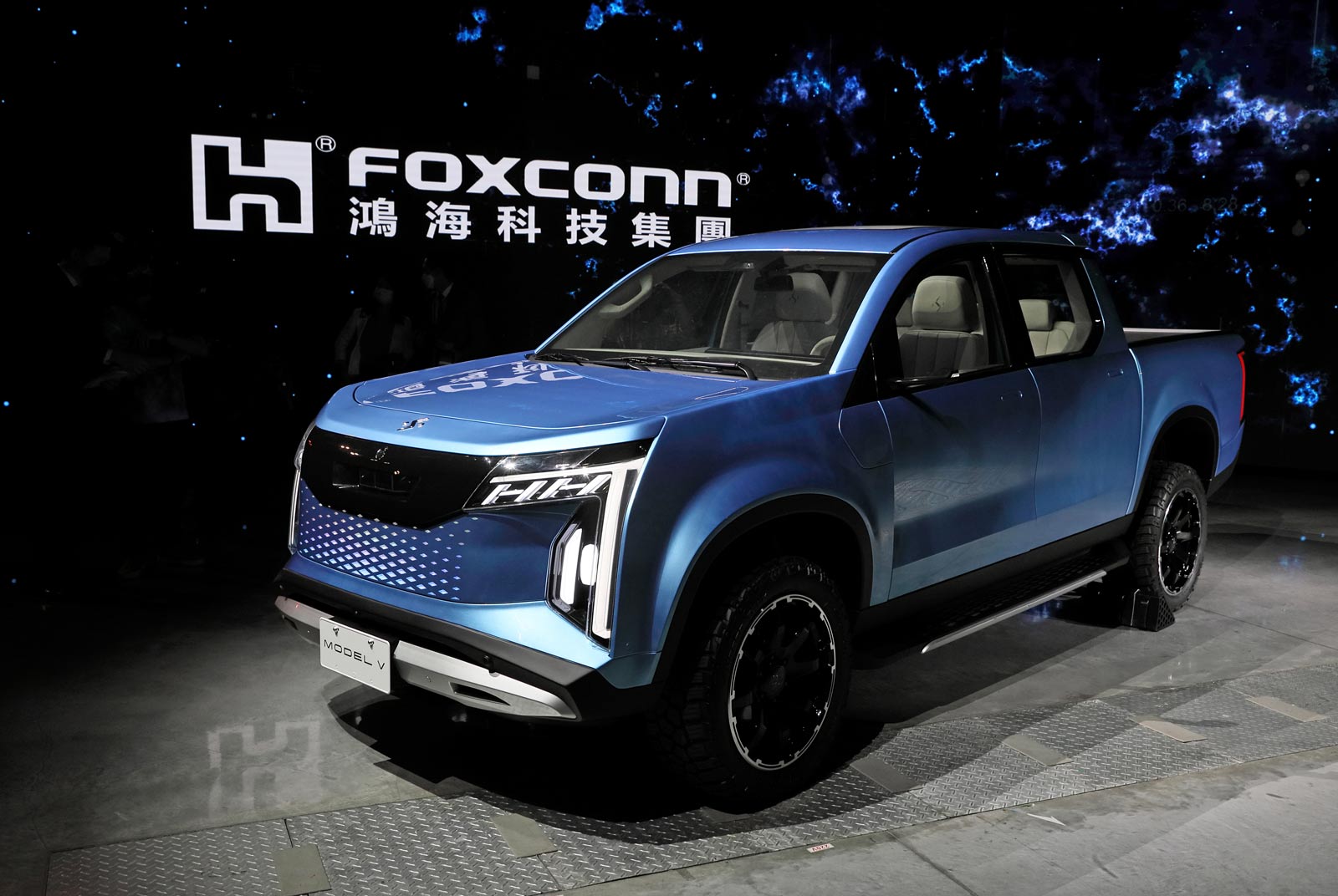Does Foxconn want to make electric vehicles?

Source:Chien-Tong Wang
Chicago University scholar Chang-tai Hsieh suggested that Foxconn's focus on producing standardized electric vehicle (EV) components, rather than manufacturing cars, could lead to long-term success in the EV industry. How will this approach secure Foxconn's position in the rapidly evolving EV market?
Views
Does Foxconn want to make electric vehicles?
By Chang-Tai HsiehFrom CommonWealth Magazine (vol. 774 )
In May 2021, Foxconn announced with great fanfare its plans to make electric vehicles. Foxconn is best known as the manufacturer of the iPhone. Foxconn’s chief executive Liu Young-way said that its long run goal was to dominate the EV industry in the same way that it already dominates contract manufacturing for consumer electronics.
But how will Foxconn do this? Foxconn has no experience in car manufacturing. It is also likely to face fierce competition from EV car companies such as Tesla and BYD. Traditional car companies such as Toyota and GM are also intent on not being left behind in the transition to electric vehicles, and have invested large resources into electric vehicles.
Foxconn’s answer is a business model straight out of TSMC’s playbook. In contrast to existing car companies where the design, manufacturing, and sales and marketing are done inside the company, Foxconn will not design or sell cars. Instead Foxconn has built a software and hardware platform to make electric cars for other companies. Its stated goal is to provide the basic software platform to design cars and a hardware platform to manufacture cars.
The vision then is that Foxconn will provide “fab" services for “fabless" car companies. Obviously there are few fabless car companies around today, but Foxconn’s platform might prompt entrepreneurs to set up fabless car companies. An obvious Foxconn customer is Apple that has long harbored the goal of selling the Apple car. And perhaps Foxconn’s platform will be so efficient that even companies such as Tesla and Toyota will have no choice but to turn to Foxconn.
But there are numerous barriers that stand in Foxconn’s way. First, Foxconn faces much more competition than TSMC ever faced. While there could be many fabless car companies that would partner with Foxconn, these companies would have to take a large share of the EV market for Foxconn’s business model to work.
The evidence to date is not encouraging. None of Foxconn’s existing customers look like they will survive beyond the next few years. In January 2023, Lordstown asked Foxconn to suspend production of the Endurance pickup truck, ostensibly because Foxconn’s cost to produce the Endurance exceeded what Lordstown could reasonably sell the product for. In early March, Lordstown said that it would be forced to close if it could not partner with an “experienced automaker.” Foxconn has also partnered with Los-Angeles based Fisker to produce a low-priced EV but they were still negotiating on the costs, making it unlikely that the Fisker-Foxconn car will see the light of day.
Part of the problem is that companies such as Lordstown and Fisker face stiff competition from established EV companies such as Tesla and BYD. In addition, traditional car manufacturers such as GM and Ford are terrified of being left behind in the once in a lifetime shift from gasoline powered to electric cars. As a consequence all car companies with decades of experience in making cars have invested large resources into EV technology. They are not likely to make the same mistake that Intel made when it famously refused to supply chips for the iPhone, and opened the door for TSMC to dominate the chip industry.
More importantly they are not likely to cede control of any technology to another company. For example, Tesla does not make its cars compatible with Apple Carplay because it does not want to give up control of a critical customer interface with its car. General Motors recently announced that its cars will also no longer be compatible with Apple Carplay, probably for the same reason. All this suggests that the incumbent car companies are not likely to use Foxconn’s software nor use its manufacturing platform. If they do so, they risk becoming another commodity car company.
So what is the future for Foxconn in the electric vehicle industry if fabless car companies are not likely to be successful? The answer could be that Foxconn will ultimately fail in its venture into electric vehicles.
But another possibility is that Foxconn may be playing 5D chess. Foxconn’s ultimate goal may not be to make cars but to dominate the market for components of electric vehicles. Here we should pay attention to the consortium “Mobility in Harmony” where Foxconn, along with more than a thousand partners, is trying to set standards for the components of an electric vehicle.
Why might this make sense for Foxconn? First, while the key technology in a gasoline powered car is the engine, the key technologies in an electric vehicle are the battery and components such as electric vehicle charging modules and powertrains. And producing standardized electrical components at scale is one of the things that Foxconn does really well.
Second, while Foxconn is known to the public as the dominant company in contract manufacturing of consumer electronics, this part of Foxconn’s business is not the source of its profits. Foxconn’s profits primarily come from its dominance in electrical components, the guts of all consumer electronics. Importantly Foxconn’s margins in components are much higher than in its contract manufacturing business.
In the electric vehicle revolution, it may be the case that the assembly of a car also becomes a commoditized low-margin business, but the standardized components become the critical technology where the margins are high. So while it is likely to be the case that Foxconn will never make money on its EV manufacturing platform, it may be wildly successful in capturing a large share of the market for components of the EV.
This raises the question whether Foxconn even needs the software and hardware platform for this strategy to work. It could be the case that Foxconn’s contract manufacturing of consumer electronics is central to its dominance of the components business. But Foxconn was able to dominate the market for PC components without actually becoming a PC manufacturer.
The car industry is currently undergoing a once in a century revolution from gasoline powered cars to electric vehicles. Understandably, Foxconn wants to have a piece of this market. The key to success is finding a niche in the market where its advantage relative to its competitors is large enough so that Foxconn can earn high margins. Foxconn’s advantage is not likely to be in providing a software and a hardware platform, but rather in replicating for the EV industry what it did for the PC revolution.
About the Author

Chang-Tai Hsieh is the Phyllis and Irwin Winkelried Professor of Economics and PCL Faculty Scholar, University of Chicago Booth School of Business
Have you read?
- Does TSMC need more financial discipline?
- Evergreen Marine profits jump 9-fold as era of mega vessels dawns
- Fuzhou pepper buns and the failure to scale
Uploaded by Ian Huang






